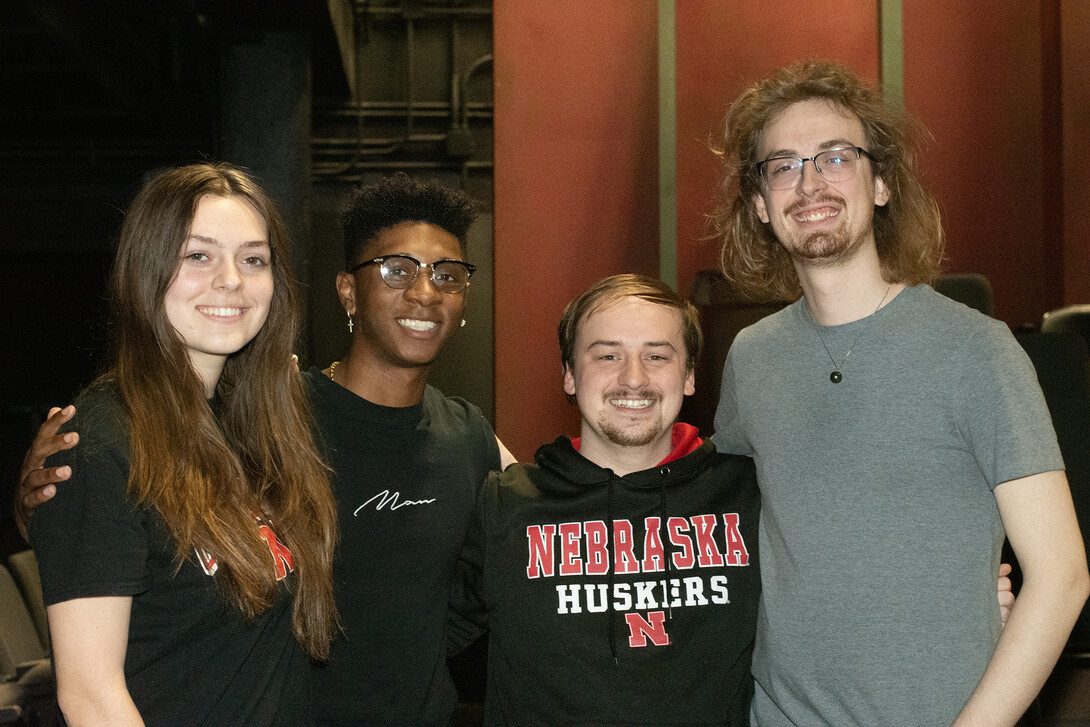
“The Flick,” a Pulitzer Prize-winning play by Annie Baker, is being presented by the Nebraska Repertory Theatre through March 9 in the Studio Theatre.
Showtimes and tickets can be found online.
“The Flick” received the 2014 Pulitzer Prize for Drama and won the 2013 Obie Award for Playwriting. It intimately captures the lives of three underpaid employees working at a run-down movie theater in Massachusetts. Through quiet moments, awkward interactions and profound silences, Baker’s masterful storytelling exposes the complexities of human relationships, loneliness and the search for connection in the digital age.
“’The Flick’ is about the stories that often go unheard,” said Sofia Drelicharz, a sophomore acting major from Omaha. “It is a mundane yet dramatic and honest story of three workers who are overlooked in an environment where people care about the fantastical fiction of a movie. It pulls back the curtains and lets the audience be a fly on the wall and be interested in people who otherwise would be forgotten.”
Director Jamie Bullins, who is associate professor of theatre in the Johnny Carson School of Theatre and Film, said silence is used profoundly in the play.
“Sometimes silence says the most in an interaction,” he said. “So much information passes through the space between. It’s definitely the truth here.”
Bullins said audiences should expect to meet people they recognize in the characters in the play.
“They know them, heck they may be them,” he said. “And it’s a good story about growth and the struggle with everyday of being people.”
And the actors know their characters well.
“They believe in this play, this story, and want so bad to share it,” he said. “You don’t want to miss it. These are some of the most honest performances you’re going to see this year.
“There is nothing in this show that can be faked. Everything, especially with Avery, has to be truthful or it will not work. Annie Baker chose these characters because they aren’t given the spotlight enough, and the only way to succeed is to represent them as truthfully as humanly possible.”







